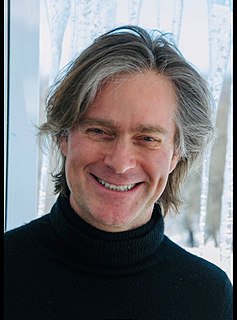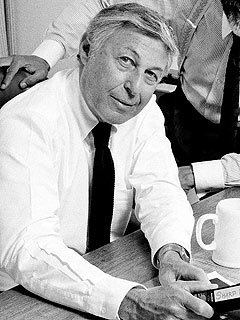A Quote by Adam Hamilton
The story of Noah, like other stories in the first 11 chapters of Genesis, are archetypal. Noah's story tells us that human beings have an inherent tendency towards violence both towards their fellow human beings and towards the creation itself. The story tells us that this violence grieves God.
Related Quotes
In all the dictatorships, there's such a non-understanding of what human beings are. I mean, if you believe in the Bible, you have the story of Adam and Eve and God tells them, "Do whatever you want. The only thing you shouldn't do is eat the apple." What do they do the first thing? They eat the apple. So if you know a little bit the psychology of human beings, you have to understand that if you say something you should not do, then everybody wants to do it.
There is a historic strain of dominion theology which says, taking its references from the Psalms, that man is made just a little lower than God, and that we are the crown of creation. That interpretation has come at the expense of the one that says when God, in the story of Noah, intervened to save human life against the flood, against the acts of nature, He did not stop with human beings. He made sure that every kind of animal was represented twice on that ark.
One of the most melancholy consequences of this habit of deferring to other nations, and to other systems, is the fact that it causes us to undervalue the high blessings we so peculiarly enjoy; to render us ungrateful towards God, and to make us unjust to our fellow men, by throwing obstacles in their progress towards liberty.
Loneliness is the inability to share your story, your Unique Self story. For most people, the move beyond loneliness requires us to share our story with a significant other. For the spiritual elite, the receiving of our own story - and the knowing that it is an integral part of the larger story of All-That-Is - is enough. But for most human beings, loneliness is transcended through contact with another person.
It's natural to be skeptical of a story like Noah. However, the greatest miracle in the Bible is not Noah and the flood. The greatest miracle in the Bible is recorded in the first verse: "In the beginning God created the heavens and the earth." If that miracle is true, then every miracle in the Bible is at least possible (including Noah's Ark). If God created the universe, then He can do whatever He wants inside it.
Humans like stories. Humans need stories. Stories are good. Stories work. Story clarifies and captures the essence of the human spirit. Story, in all its forms—of life, of love, of knowledge—has traced the upward surge of mankind. And story, you mark my words, will be with the last human to draw breath.
The desire for story is very, very deep in human beings. We are the only creature in the world that does this; we are the only creature that tells stories, and sometimes those are true stories and sometimes those are made up stories. Then there are the larger stories, the grand narratives that we live in, which are things like nation and family and clan and so on. Those stories are considered to be treated reverentially. They need to be part of the way in which we conduct the discourse of our lives and to prevent people from doing something very damaging to human nature.
A person is a person through other persons. None of us comes into the world fully formed. We would not know how to think, or walk, or speak, or behave as human beings unless we learned it from other human beings. We need other human beings in order to be human. I am because other people are. A person is entitled to a stable community life, and the first of these communities is the family.
When I pray the Lord's Prayer, I begin with the first word, "Our. . ." (see Matthew 6:9) and I stop and ask myself, "Who do I include in this Our?" I remind myself that the story of God is bigger than my personal story, bigger than the story of my religion, bigger than the story of all humanity, and bigger than the story of all creation. In the kingdom of God, these four stories are all really my stories - all at the same time - woven together, giving meaning and life to each other.






































